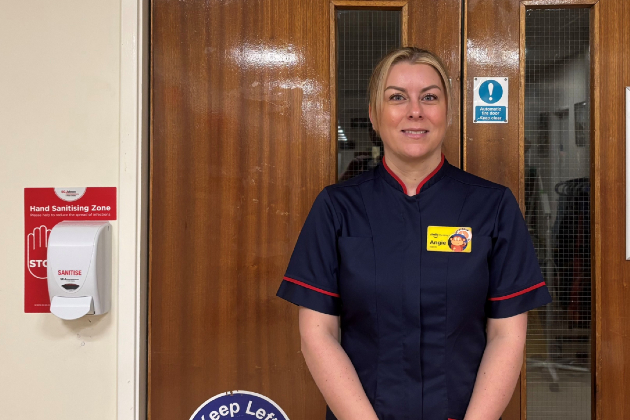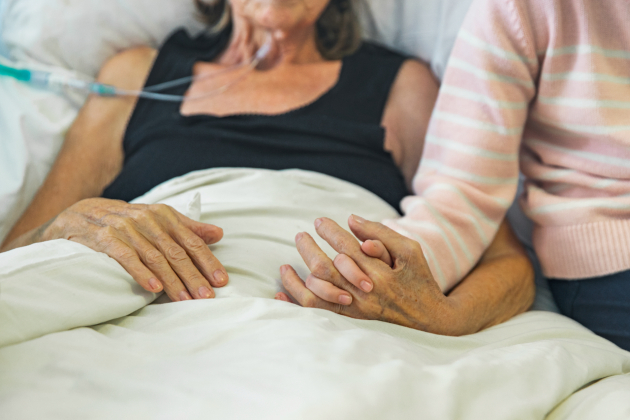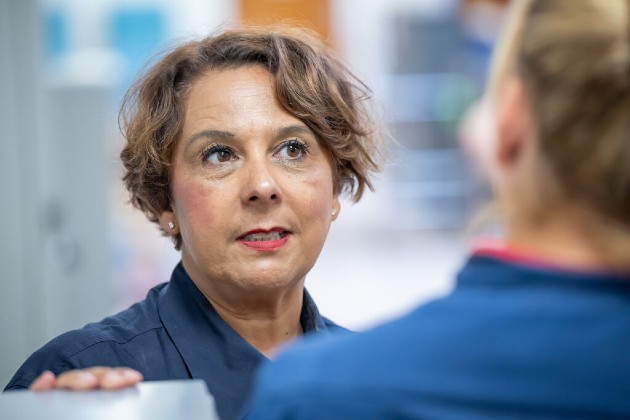We’re taught in university about observations and escalation, maintaining dignity and respect and the importance of hygiene – and so much more – so I didn’t feel completely unprepared for my first placement in a hospital, but I was very nervous.
We’re also taught about end of life care and death but it never really sinks in that you’re going to be with someone in the last moments of their life until the first time you witness it. Lectures just can’t teach you that. How are you going to feel? And how will you deal with it?
University prepares you for a lot, but not everything
When I first experienced this I was on an orthopaedic rehabilitation ward and had been working in the same bay for around four weeks. I knew all my patients, I knew their families, friends, hobbies and even quirks. A week prior to the experience I was told during handover that one of the patients was now in the last few days of their life. During the week the patient grew weaker and weaker and the reality of the situation hit me.
I just wanted to give the patient a cuddle and tell her everything was going to be OK. At the end of the week a health care assistant (HCA) went in to check the patient’s observations but forgot a piece of equipment so she had to leave the room to retrieve it. By the time the HCA had done this – approximately three minutes later – the patient had passed away.
Reality hit me
Immediately I felt the urge to cry. I had spent so much of my time with this patient over the last few days. I was shocked the time had finally come, quicker than I had expected, but also slightly relieved my patient was out of pain. Everyone started discussing ringing “rose cottage” (the morgue) and who was able to do “last offices” (preparing the body for the morgue). I approached the nurse in charge and asked if it was OK if I performed last offices with another member of staff. I almost felt as if I owed it to my patient after I had spent so much time with them.
Before last offices I had to take myself to the staff room because it hit me hard what I was about to do. I cried a little, and I think this is alright. It means you cared for your patient, and you were successful with that professional relationship lecturers talk about.
Walking into the room I was slightly confused to find the HCA talking to the patient as if it was a normal day, but quickly realised it was somewhat comforting. Throughout, we maintained the patient’s dignity by covering parts of the body that weren’t being cleaned.
After washing the patient, their jewellery had to be removed and noted down ready to be sent with them to the morgue. After all checks were done we had to put a label onto the left wrist and wrap the patient in a sheet – for me this was one of the hardest things to do. Once the patient was ready, all curtains were closed in the main ward so when the porters came to collect the patient the other people on the ward wouldn’t see anything.
Throughout this experience I felt honoured to be with the patient. Lectures just don’t teach you that. My advice is to remember these three things:
- always treat your patient with dignity and respect
- it’s OK to cry (whether in a staff room, on the way home or even at home)
- everyone deals with this process differently.
And finally, remember that if you find this process distressing you can always report to your mentor, lecturers and link lecturers for support.
If you have time to sit with a patient in the last moments of their life I highly recommend doing so – providing they don’t already have family with them.
I felt like in the absence of being able to do anything else for the person to get better, I could still be there to comfort them, hold their hand and talk to them.
Support for you
The RCN offers a free confidential counselling service for members. Call 0345 772 6100 to enquire about an appointment.








